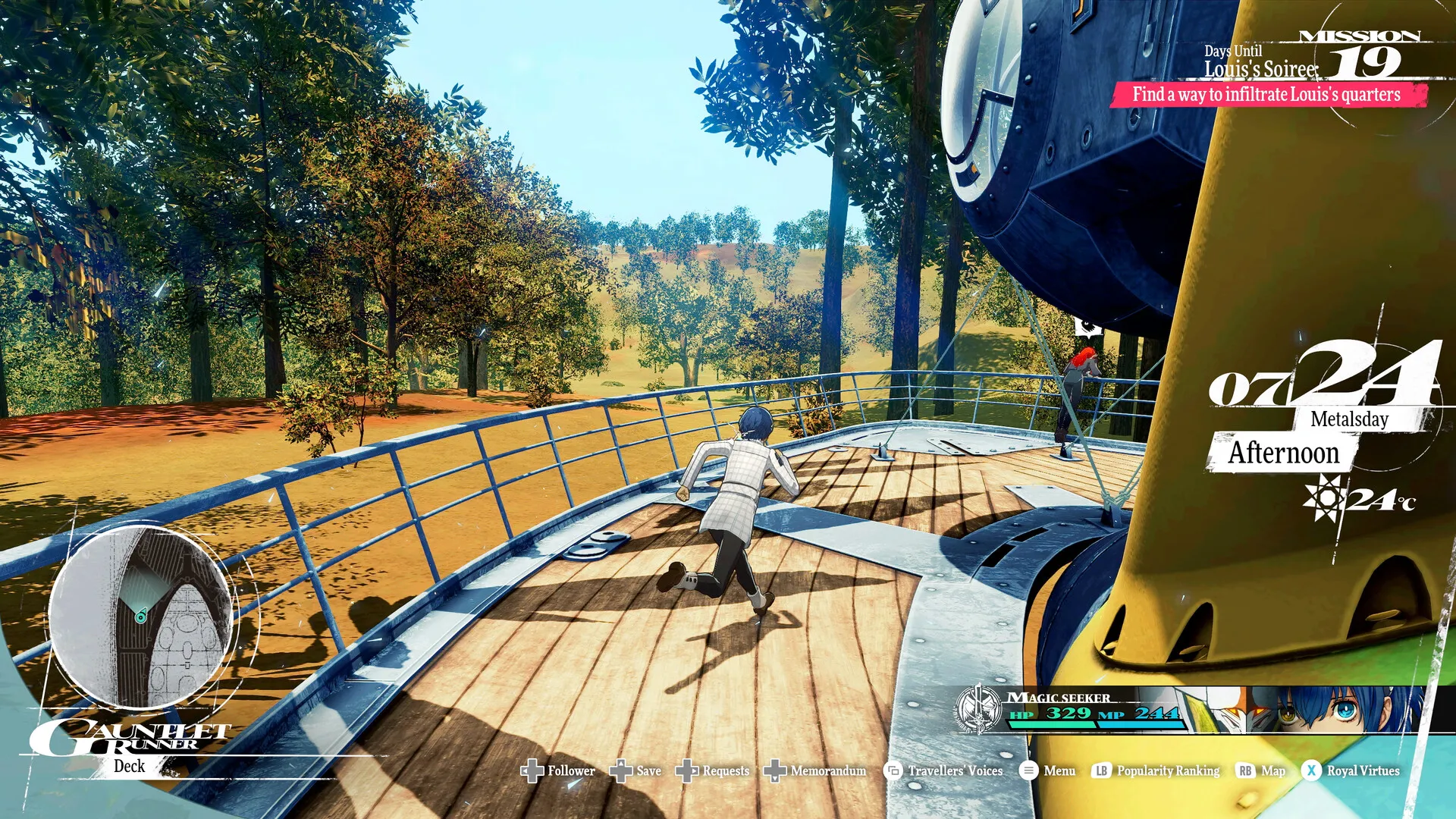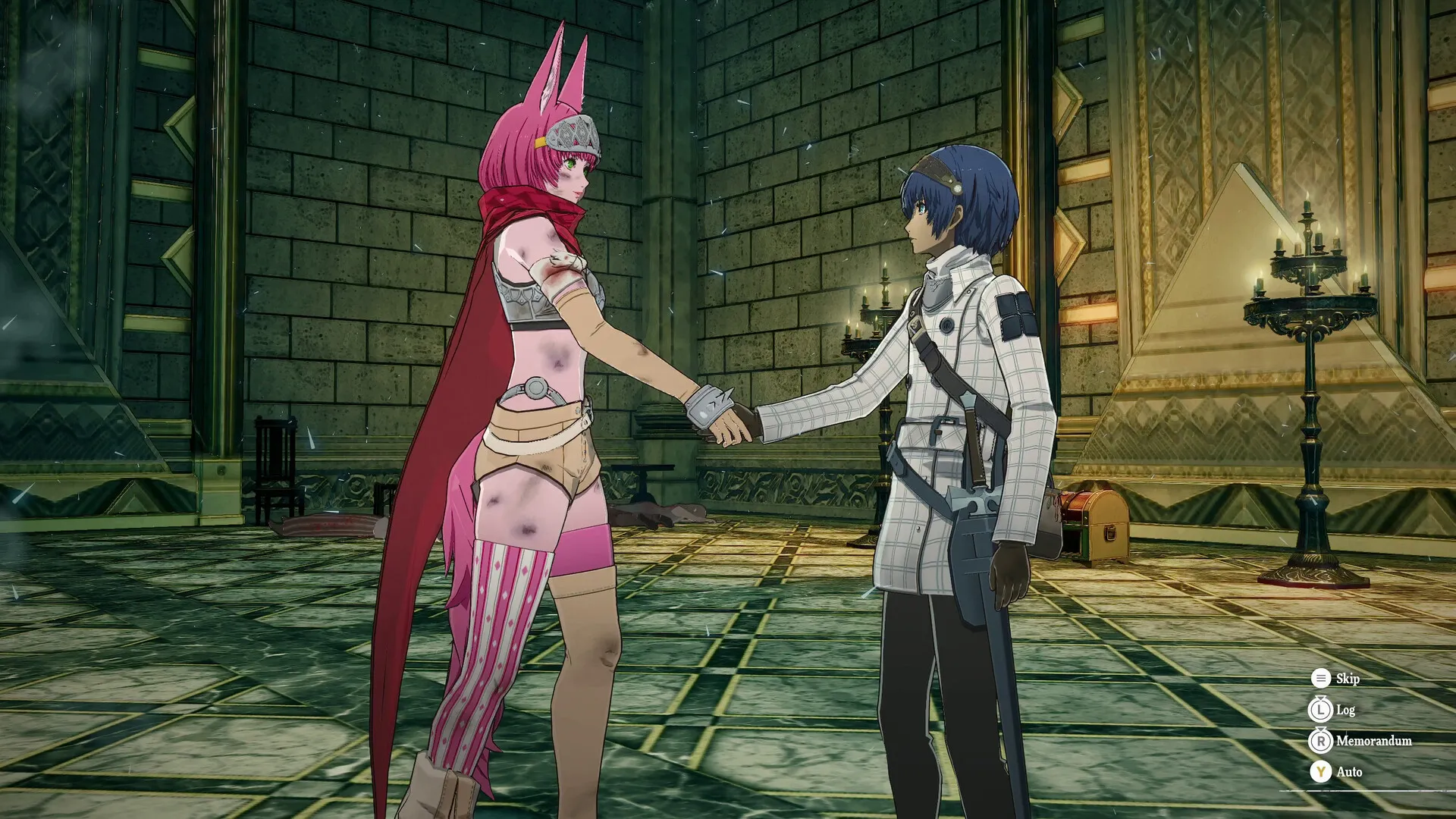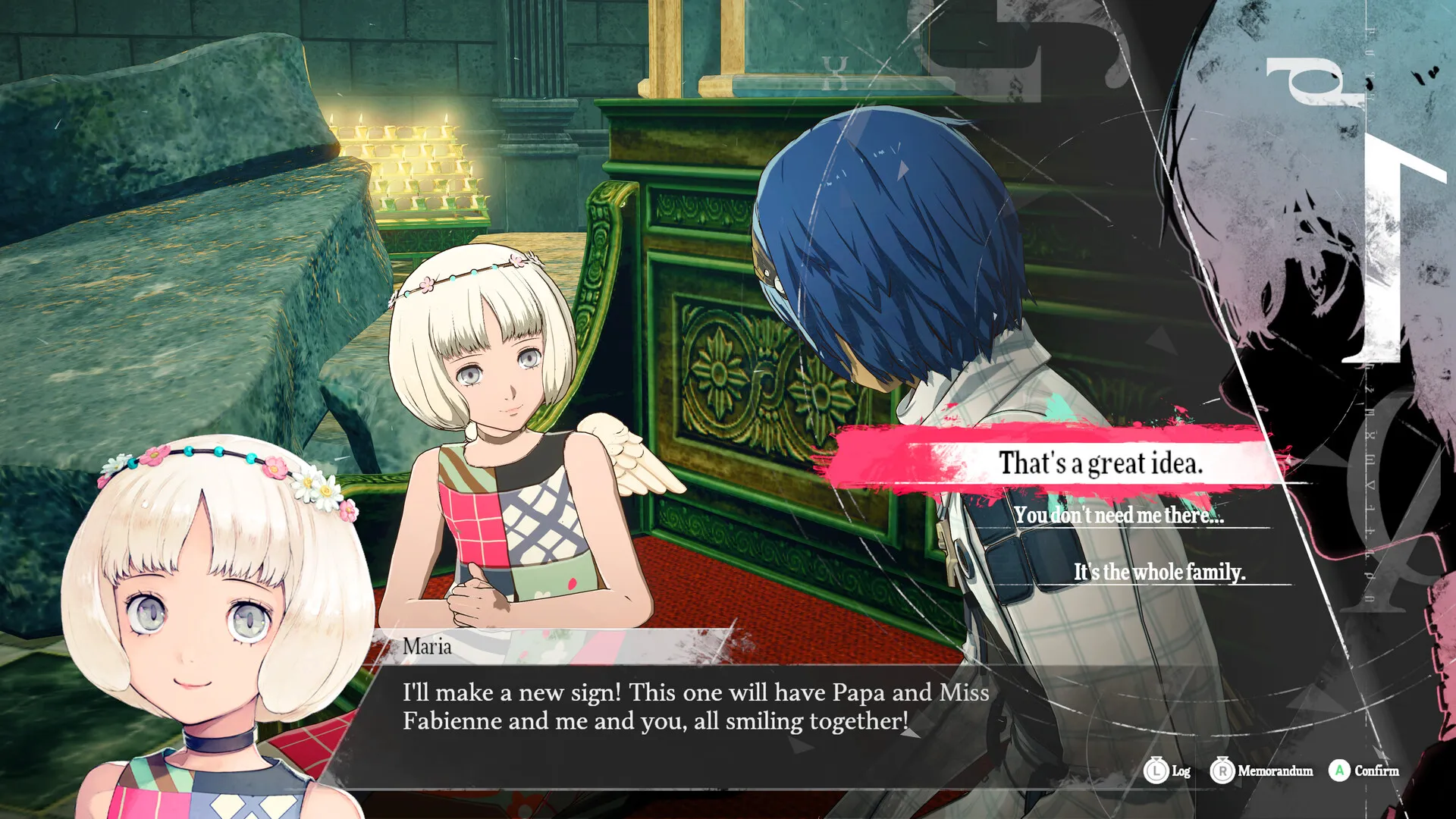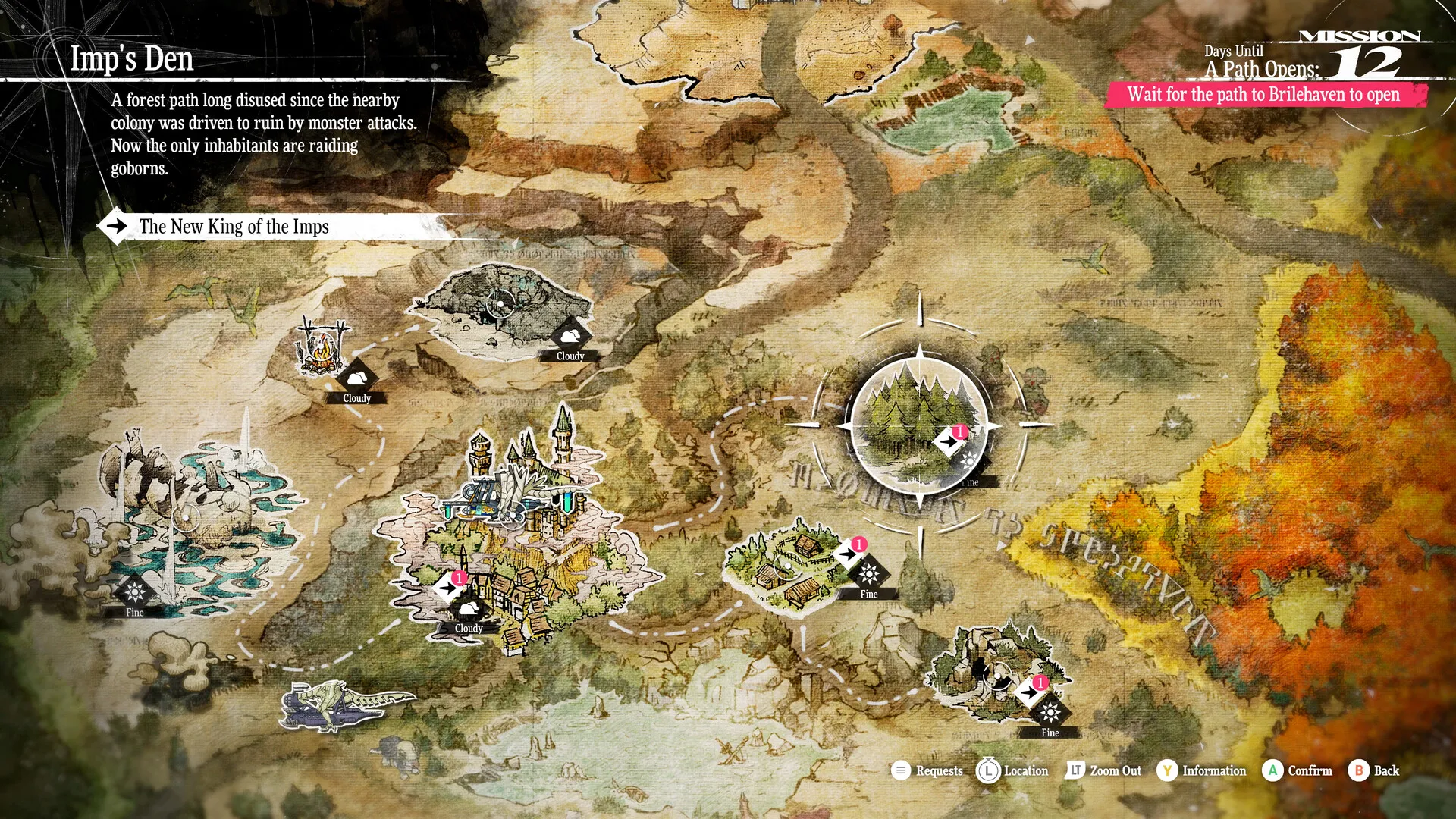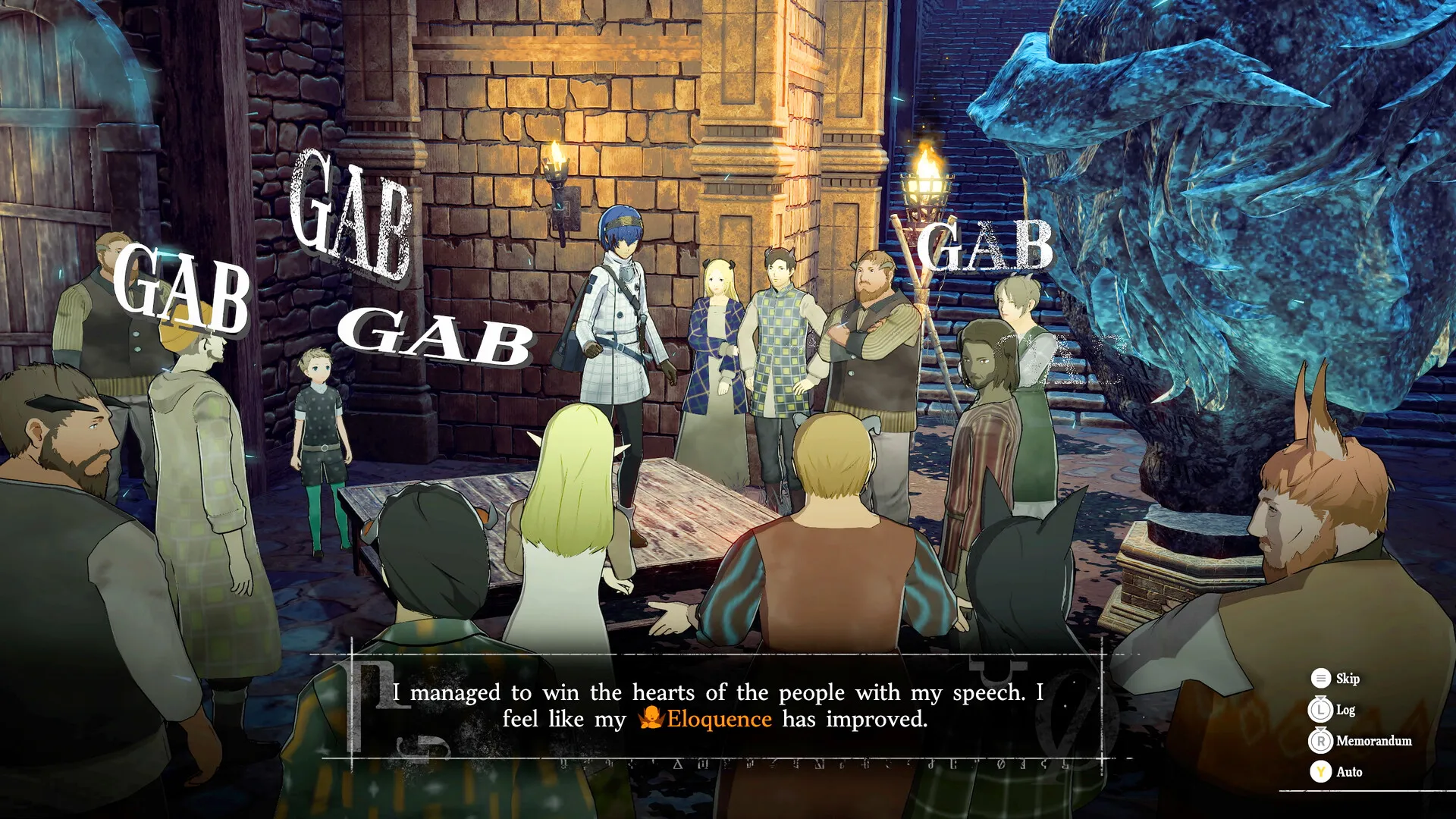Metaphor: ReFantazio invites players into a rich fictional world crafted by prolific game studio Atlus. At first glance, its fantasy kingdom of Euchronia seems like a standard sword and sorcery setting, but appearances can be deceiving. As I ventured through this realm, I encountered challenging themes that felt strikingly relevant—inequality, racism, corruption of power.
Yet Euchronia isn’t just a reflection of real issues. Its narrative experiments with distorting reality, casting our own world as the mystical realm yearned for within the game. You take control of a player character who owns a forbidden book portraying an idealized version of modern society, free from prejudice. But only you, the real player behind the screen, recognize this “utopia” as our current reality.
This twist sparked my curiosity around Metaphor’s further experiments in metafiction. How might it continue blurring boundaries between fantasy and truth? And what deeper insights could emerge from such unconventional storytelling? Atlus is known for engaging RPGs that stimulate both mind and heart. I sensed their distinctive style at work beneath Euchronia’s surface, hinting at a thoughtful journey ahead.
My interest was also piqued noticing Metaphor inherits mechanisms from Atlus’ renowned Megami Tensei and Persona franchises. Its systemic foundations promise rich character customization and tactical battles. Yet this prequel takes risks to refine old formulas. I was eager to experience its reimagining firsthand, uncovering how successfully it evolves classic RPG traditions into new and meaningful forms.
An Elected Utopia
In Metaphor’s kingdom of Euchronia, the whims of fate stir turmoil. With the king murdered, his comatose son can’t claim his birthright. This power vacuum ignites an innovative—yet deeply fraught—solution: let the masses elect their new leader.
You emerge as a candidate in this “magically-driven election.” But burdens of identity hamper your campaign. As an Elda, your race faces systemic prejudice, relegated to lives of poverty. Your only advantage seems to be a mysterious connection to the sleeping prince.
Grave societal ills cripple Euchronia. Prejudice stratifies society, while destitution and extremism fester in the oppressed. As you connect with backers representing each struggle, the story shines light on injustice’s roots. Only collective empowerment can overcome such entrenched difficulties.
A key thread adds metafictional intrigue. The protagonist owns a secret tome describing an idealized “utopia”—our r reality, where none suffer society’s flaws. Though inspiration for Euchronia’s people, only you grasp fiction’s limitations. How can dreams of equality materialize without addressing harsh truths?
Themes prove anything but surface details. Euchronia acts as microcosm for issues shackling marginalized groups worldwide. While some critique its blunt delivery, this honesty lays Atlas’ empathetic stances bare. Ultimately, harmony demands facing unpleasant realities, not obscuring them with platitudes. Metaphor crafts an electric narrative to convey these progressive ideals.
An Eclectic Crew
The characters you encounter truly breathe life into Metaphor’s world. Your party members stand out as complex figures struggling against injustice in distinct, relatable ways.
First is Strohl, a noble fallen from grace. Though his privileged upbringing left him ill-suited to poverty, his empathy emerged through hardship. You also meet Penny, an Elda surviving on wit despite oppression. Her scars hint at resilience hard-won from early pain.
Then comes Rye, a devout man wrestling his faith amid corruption. Doubt plagues him, yet steadfast hope remains. Donnia represents the disenfranchised workers, fighting exploitation with fiery passion. Each carries drama that mirrors societal plights.
Bonding develops their tales. As followers, interactions flesh out adversity faced with poignant humanity. Reciprocal care eases burdens, recognizing shared strength within suffering’s diversity. Victories feel mutual through teamwork celebrating difference as humanity’s asset, not a defect.
Companions also deepen the plot. Their dedication inspires your leadership, granting purpose amid political intrigue. Later, a joyous reunion reaffirms bonds’ power, even when turmoil strikes. Where others numb hardship, this troupe transforms pain into empowerment through empathy. Their growth bolsters courage for greater challenges ahead.
While gameplay incentivizes bonding, spontaneous charm emerges more so. Witnessing hurt, then healing inside this group feels rewarding beyond mechanics. Their triumph proves what united strangers can achieve when lifting each other in solidarity against the oppression threatening modern lives worldwide.
Weaving systems into stories
Metaphor masterfully integrates gameplay into its compelling narrative. Chief among its mechanical charms lies the calendar system. Here days unwind with purpose, as choosing how to spend limited time takes strategy.
Blossoming bonds and tackling dungeon expeditions each demand segments. Prioritizing becomes a dramatic dance, where the looming election’s closure tightens pressure. This deftly conveys the work required for change while maintaining momentum’s thrill.
Greater depth emerges from the archetype system. Party members morph regularly through these malleable “jobs,” blending their skills without restriction. Experimenting births wild party permutations perfectly fitted to any foe.
Turn-based combat leverages this flexible foundation. Taking down targets emphasizes exploiting cues over brute force. Figuring out combinations satisfying each battle’s puzzle engrosses to the last press of an attack.
Streamlining social sim aspects focuses this gripping dance, demanding resourcefulness within restricted time. Meanwhile, overworld combat’s brisk action cuts tedious grinding. These tweaks breathe new verve into classic foundations.
Metaphor thus ensnares players within an artfully simulated world. Where mechanics evolve story, immersion strengthens. One loses themselves within dramatic struggles that reflect realities beyond pixelated borders. Systems sing in service of greater themes, their blending an audacious success crafting video games as meaningful art.
Adventures Beyond the Main Quest
Beneath Metaphor’s surface thrives side opportunities expanding its world. Delving dungeons offers resourcefulness and revelation.
Whether tackling bounties or favors, each dungeon breeds its own tests. Environments mutate amidst quests, sheltering fresh foes. Strategy shapes tactics to challenges’ nature.
Rewards motivate ventures into peril. Loot and levels strengthen, while ranking and riches bring broader benefits. Yet motivations shift—camaraderie sparks in tense scenes, rediscovering teammates’ depths.
Optional objectives supply balance too. When social simulations squeeze schedules, dungeoneering diversifies pacing. Treasured time away refreshes before political plots’ urgency.
Relationships also deepen indirectly. Explaining trailhead curiosities pulls others along. Later, outings kindle appreciation for comrades’ diverse skills and strengths.
Variety enriches without bloating duration. Supplementary activities flesh out a bustling world. Their fruits ripen understanding for kingdom and characters alike, rounding experiences within Euchronia.
A World Brought to Life Through Artistry
Metaphor comes alive through its masterful artistic presentation. Atlus crafts a vision that immerses wholly within its richly dreamed world.
Character and environment designs transport players to a densely imagined realm. Villains twist the freakish in frightening form, while heroes charm with nuanced verve. Landscapes stun in breathtaking scope, despite technological limits. Art direction conquers where graphics constrain.
Shoji Meguro weaves another spell through his score. Grandiose orchestral epics swell during daring deeds. Melodies linger long after, recalling moments through melody. His touch brings narrative beats to life, whether tense chase or tender reunion.
Voice acting elevates every moment further. Casts skill gifts nuance to each quirk and pain. Accents transport straight to Euchronia’s bustling streets or isolated valleys. Their passion ensures story and sympathy resonate as profoundly as read.
On PC, optimization slickly resolves issues that once plagued. Settings switch smooth performance from any machine. Graphics ignite imaginations rather than frame rates. Metaphor thrives as art, alive in memory long after final scenes fade.
Through vision, sound, and voice, metaphor molds magic that lingers long after the last keys click. Here, craft triumphs over tech, weaving wonders that engross and endure.
An Enchanting World Worth Revisiting
Without hesitation, I heartily recommend diving into Metaphor’s magical realm. Atlus crafted an experience that both entertains and inspires through its commitment to meaningful storytelling.
Over a hundred hours immersed, Metaphor’s characters and tale lingered in my mind for weeks after. Rarely does fiction stimulate my imagination, so leave me fantasizing about possible alternative adventures. The party’s charm and compassion stirred me in a way few other games managed.
While familiar in foundations, metaphor enhances mechanics into fresh synergies. Systems now flow with purpose, keeping momentum and driving its poignant narrative forward. Combat evolves into strategic puzzles begging experimentation.
Atlus raised the bar they set. This prequel surpasses its inspirations by refining what works and trying untested concepts. Metaphor proves sometimes the best way to progress is by looking back and questioning how to forward ideas with subtle twists.
More than fantastical worlds or clever mechanics, what resonates strongest is its hope. Amid today’s difficulties, portraying collective care and understanding as society’s surest path inspired. I believe others will find solace in its message as I have.
When last credits rolled, parting from Euchronia gave bittersweet relief. Though its journey ended, wisps of wonder stole my thoughts, making me wish to return. In ReFantazio’s realm waits another tale well worth experiencing. I suspect its magic may linger with you, too.
The Review
Metaphor: ReFantazio
Metaphor: ReFantazio is a masterful evolution of the beloved Atlus RPG formula, marrying refined mechanics with a profound narrative that stimulates both mind and heart. Through its vividly brought-to-life world, compelling characters, and thought-provoking themes, the game offers over 100 hours of pure enchantment. While familiar foundations provide comfort, bold innovations continually surprise and excite. Metaphor asserts itself as a true successor to classics like Persona not just through fun but its ability to impact players long after credits roll. This magical journey through a deeply imagined fantasy land comes wholly recommended.
PROS
- Deeply engaging story with poignant exploration of real-world themes
- Memorable cast of complex, empathetic characters
- Refined mechanics that enhance the classic Atlas RPG formula
- Striking artistic direction brings a fantastical world to life.
- Soundtrack and vocal performances further immerse the player
- Over 100 hours of enthralling gameplay
CONS
- Dungeon layouts can feel repetitive at times.
- Writing occasionally relies on cliches
- Technical performance could still use optimization.







































